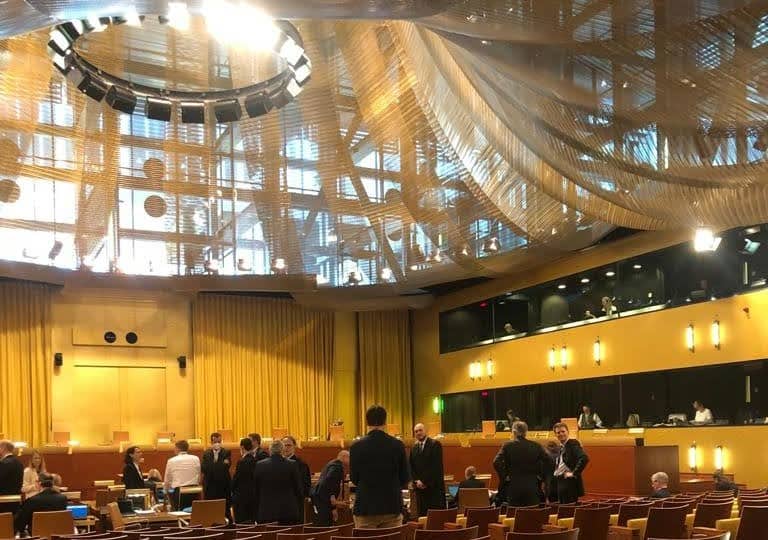The prohibition of most-favoured-nation practices under Article 5(3) of the DMA is a competitive practice that restricts the freedom of action of commercial customers outside the platform. However, most-favoured-nation treatment is not to be confused with self-preferential treatment, which is the subject of this article today.
For the sake of clarity, here is the full text of Article 6(5) of the DMA:
The gatekeeper shall not treat more favourably, in ranking and related indexing and crawling, services and products offered by the gatekeeper itself than similar services or products of a third party. The gatekeeper shall apply transparent, fair and non-discriminatory conditions to such ranking.
Art. 6 (5) DMA
Object
The text of the regulation is straightforward in comparison with other regulations within the DMA. The background here is also an antitrust case study. The situation is that a platform assumes a dual role in competition: firstly, it acts as an intermediary for third-party companies, while secondly, it is in direct competition with these third-party companies — on its own platform.
Within the framework of its intermediary role, the platform can influence its presentation results (aka ranking) and thus restrict competition on products or services between itself and the third-party companies. If this happens without objective justification by a dominant or relatively powerful company, such practices are already prohibited under general antitrust law. A clear objective justification may be the proven different relevance of the products or services on the intermediary platform. If there is no objective justification, then antitrust law and also the DMA assume a conflict of interest: The gatekeeper undermines his competitive contestability with regard to the products or services. In doing so, he puts his own interests above the interests of the competition — to be protected by him.
Some examples are listed in EC 51 DMA:
- Online intermediary services provided through online search engines.
- software applications distributed through software application shops
- Videos distributed via video-sharing platform
- Products/services that are (1) highlighted in the newsfeed of an online social networking service (2) displayed in search results or on an online marketplace (3) offered via a virtual assistant
Overview
The text of the regulation primarily refers to ranking. According to Art. 6 para. 5 DMA, the gatekeeper must carry out the ranking on the basis of transparent, fair and non-discriminatory conditions. What matters is the result and whether the products or services offered by the gatekeeper are treated differently or preferentially.
The term ranking is defined in Art. 2 No. 22 DMA (with my editorial highlights):
“‘ranking’ means the relative prominence given to goods or services offered through online intermediation services, online social networking services, video-sharing platform services or virtual assistants, or the relevance given to search results by online search engines, as presented, organised or communicated by the undertakings providing online intermediation services, online social networking services, video-sharing platform services, virtual assistants or online search engines, irrespective of the technological means used for such presentation, organisation or communication and irrespective of whether only one result is presented or communicated;”
Art. 2 No. 22 DMA
In other words, it is a matter of the platform making a selection decision about results vis-à-vis the end user. All integrated online search engines are covered. Thus, the scope of application of this provision is conceivably broad and also includes mere product design decisions. This also results from the examples listed, with which the legislator presents the further potential danger. Moreover, it is not decisive whether the gatekeeper makes the decision himself; a user controlled by him would also be covered. This is intended to exclude circumvention solutions.
A ranking can already be wrong according to these guidelines if one’s own products or services are given a better position at the upstream stages of discovery or indexing without objective justification. In addition, according to EG 52 S. 4 DMA, any measure with the same effect as a differentiation or preferential treatment is to be covered. This covers legal, commercial as well as technical measures and corresponds to the broad practice of antitrust law. Art. 6 para. 5 p. 2 DMA additionally stipulates that the gatekeeper must carry out its measures according to transparent, fair and non-discriminatory conditions. According to EC 52 S. 4 DMA, there should be a parallel with Art. 5 P2B Regulation, which also refers to the ranking conditions.
What is not explicitly explained is what is involved with similar services or products of a third party. What is similar should again be understood very broadly. Otherwise, it would be conceivable that a gatekeeper could design its own products or services in such a way that they could no longer be directly comparable with those of third parties. Such a deliberate circumvention of the prohibition should not be possible for the gatekeeper. This results on the one hand from the clarification that measures with the same effect are also covered. In addition, the contestability in competition argues for an even more intensive interpretation than in general antitrust law, which only protects the keeping open of the competitive process.
Furthermore, it is not directly explained which services or products of a third party are covered at all. However, it is only in this context that the actual connecting factor of this provision arises, namely as a prohibition of abusive predatory strategies. Art. 6 para. 5 DMA thus presupposes that the gatekeeper must provide the intermediary services to the third parties. This is because the most severe measure with the same effect of self-preference is the complete exclusion of the third party companies. This also prevents the gatekeeper, within the scope of the prohibition, from restricting its previously open search engine for purely self-marketing purposes out of purely self-economic interest. Should a gatekeeper terminate the business relationship here or not include a third party company in the search engine, it could directly rely on the prohibition under Article 6(5), irrespective of antitrust requirements.


















